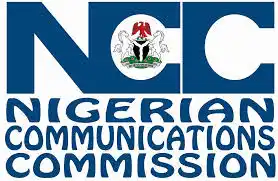NCC has made a call in support of further investments in data management via data centres in Nigeria

The Nigerian Communication Commission (NCC) has declared that it has become highly imperative for more investments in the data centre segment of the telecoms sector.
With over $1 billion data centre investment seen thus far, largely in Lagos, NCC noted that more data investment is required to further deepen the broadband agenda of the Federal Government.
The Executive Vice Chairman of NCC, Prof. Umaru Danbatta, made this known at the Telecoms Sector Sustainability Forum (TSSF) 4.0 organised by Business Remarks in Lagos recently, with the theme: ‘Mainstreaming Data Centres in the Nigerian Digital Economy.’
Danbatta, represented by Head, Tariff Administration NCC, Dr Sunday Atu, said mainstreaming data centres would require collective efforts.
According to him, there is a need for support to ensure data centres not only operate to guarantee national digital sovereignty but also prioritise contents reflecting the country’s cultural norms, contexts and ideological values. Data is regarded as the new oil globally with increasing intensity in the context of the emerging digital economy.
Danbatta further explained that data had become a subject of special consideration by regimes, requiring appropriate structures and frameworks to truly tap and optimise the opportunities provided by this new order.
He noted that data centre services, no doubt, held the keys to the ultimate crystallisation of the new line of thinking within the ICT sector and by extension to the greater national economy of nations in so many ways.
According to Danbatta, “Recent developments point to the limitless treasure within this space. Africa has recently assumed a new frontier and compelling destination for global big tech players. Tech giants, like Google with its Equiano subsea fibre cable spanning 15,000 km from Portugal to South Africa and strategic landing points in Nigeria and Namibia, are expected to increase connectivity more than five-fold within Nigeria while creating an expected 1.6 million jobs.”
The nation’s chief telecommunications regulator also spoke on the release of more spectra for 5G services to further lower the costs of providing mobile broadband services.
“Additionally, the recent conclusion of the framework and licensing of Mobile Virtual Network Operators represents another big bang in the industry after the launch of GSM in 2001. This is expected to engender greater expansion, more reach and additional choice to consumers in addition to enhanced service uptake on Data Centre Operations.
“Digital platforms are expected to rapidly expand and stimulate the digital ecosystem across e-commerce, banking, education, entertainment, health and government. There have also been increased rollout of Fibre infrastructure across metropolitan areas, especially Fibre-to-Base stations required to support the surge in bandwidth demand.”



